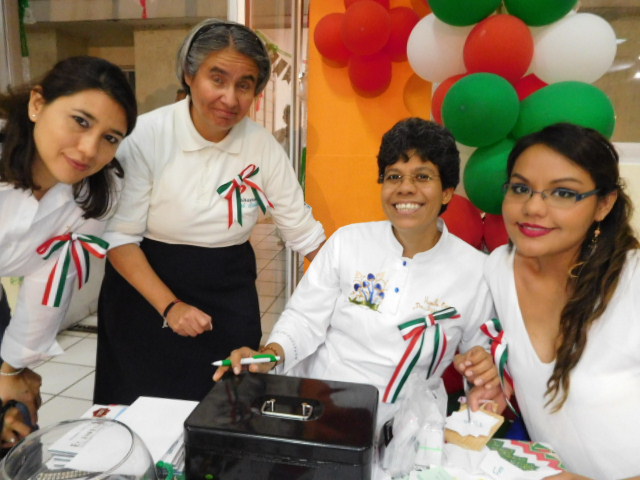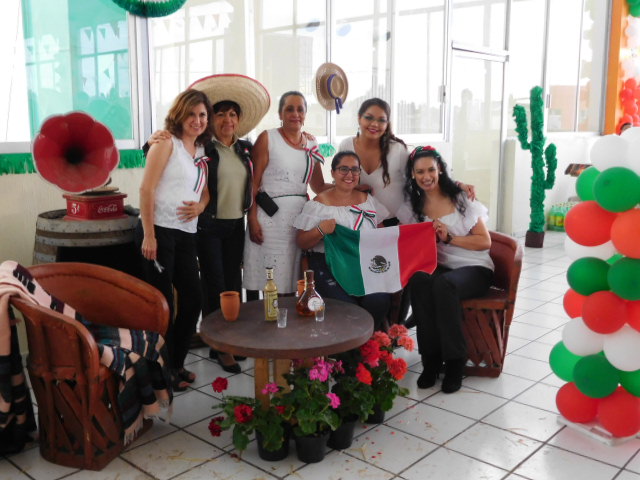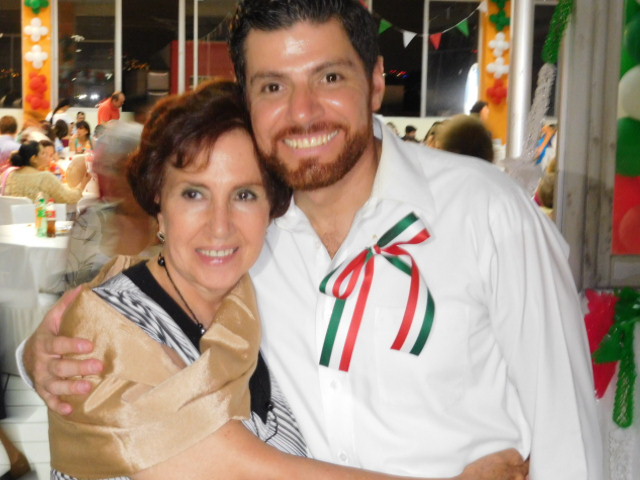Juntos Contra el Dolor, A.C., the only 24/7 palliative care and hospice service in the state of Jalisco, Mexico, leads a yearly (sometimes twice yearly) medical and humanitarian mission to assist the Mazateca (people of the deer) in remote mountain communities of Oaxaca state. The team is led by Juntos founder Dr. Susana Lua Nava, a thought leader in palliative care and hospice.
Palliative care in Mexico is generally provided by a team of doctors, nurses, social workers, psychologists, chaplains, and trained volunteers with the goal of relieving pain and creating a comfortable existence for patients physically, emotionally, and spiritually. An important part of the work is the educational component for families and caregivers. Hospice is an extension of palliative care for end-of-life.
This year a group of 13 Jalisco volunteers (two physicians, nurses, social workers, a nutritionist, and trained palliative care missionaries) drove from Guadalajara in a rented white van to the high Sierras of Oaxaca in southern Mexico. The trip took 14 hours. After arrival, they spent the night in a local church in Huautla de Jimenez, population approximately 32,000. (See references and You Tube videos below for more info).

Each day for nine days the team, divided into three groups, walked and climbed footpaths to families in the areas of San Andres Hidalgo, Chilchitlan, San Antonio, and Santa Carlota. Dwellings of each family are about an acre or more apart, sometimes kilometers apart.
There is no running water in the dwellings. There is no electricity except in rare instances. There is no natural gas. Wood is used inside homes and exposure to smoke can lead to respiratory illnesses. Some families do not have shoes.
The Mazateca homes, people, and clothing are clean and tidy. Personal hygiene is conducted with soap and small plastic bassinets of water.
“Although the trips are physically exhausting,” recounts missionary German Maria Becercil of Guadalajara, “they are an excellent reminder of how much I have and am grateful for – hot water, a refrigerator, a stove, and most of all my health.”

Mazateca tradition of shamanic healing
The Mazateca culture holds unique health beliefs.
When illness strikes, they follow a tradition of shamanic healing with the use of “magic mushrooms” or salvia divinorum (a green paste made from a plant), mixed with cosmology and some Catholicism (altars, candles, and prayers). The ill person is usually laid on the ground over blanket-covered wooden slats.
The man in the photo below was thought to be dying of extreme stomach pain. His family placed the salvia (the green paste) on his head. It turned out he had a curable condition – ulcers – and the team was able to assist his healing.

There is a general lack of knowledge among Mazatecas about many illnesses, especially cancer. There are no modern communications systems in rural areas. Few Mazatecas read or write. There are rarely funds to consult with a physician in Huautla, or to pay for medicine. “The situation is hard for these appreciative and kind people. Without access they just get sicker,” comments missionary German.
The Juntos Contra el Dolor team is Catholic yet ecumenical. The team honors and works with traditions and belief systems of those they attend. Each mission has been able to address chronic pain and other needs, plus provide nutritional, emotional, and spiritual support. In addition to medical expertise and heartfelt prayers for patients and families, Dra Susana Lua Nava offers additional love and comfort by bathing the feet of those she cares for.
As many Mazatecas do not speak Spanish, local interpreters work with the mission.
This year, the team met an 18-year-old who had been diagnosed with stomach cancer in Puebla (the closest public (free) hospital). Doctors did not tell her or her family she might die. Apparently no treatments were offered and no medicine was available. No education or instructions were given about what to expect or how to handle the pain.
It is possible there was no pain medicine available at the public hospital (often the case throughout Mexico). Perhaps the hospital did not have a palliative care team (likely), perhaps doctors were frustrated when there were no medicines to offer, or, perhaps the girl was discriminated against because she is indigenous and they wouldn’t give her medicine if they had it. There is no reliable account of what actually happened. Dra Susana Lua Nava and the team brought pain medicines and gave the family detailed instructions on how best to take care of their loved one.

Despite the sad situations of illness encountered, missionary German concludes “in the 14 years I have been on humanitarian missions, I end up receiving much more than I have given.” Being with the noble Mazateca is always a gift. His sentiment was expressed by others who also felt humbled by the experience.
Mexican Palliative Care Law of 2009
The Mexican Palliative Care Law of 2009 states that anyone suffering from severe pain, especially with a terminal condition, has a right to relief from that pain. Unfortunately, the public is often unaware of this human right and where to find the help when needed. http://www.calidad.salud.gob.mx/site/calidad/docs/dmp-paliar_00C.pdf
See also the Human Rights Watch report on palliative care in Mexico, “needless suffering at the end of life.” https://www.hrw.org/news/2014/10/24/mexico-needless-suffering-end-life
Juntos Contra el Dolor, A.C. (United Against Pain) is a non-profit palliative care hospital and hospice in Guadalajara, Mexico offering consultations, in-home care (65-70 patients), and in hospital palliative care and/or hospice service. The mission is supported by donations. Founder Dra Susana Lua Nava is the author of El Enfermo: Terreno Sagrado (The Ill: Sacred Terrain). For more information write to juntoscontraeldolor@gmail.com or call (52)(33)3617 2417 in Guadalajara. See http://www.juntoscontraeldolor.com (currently under construction) and Facebook USA page at https://www.facebook.com/JuntosContraelDolorUSA/
Notes and references:
There are approximately 305,836 Mazatecas in Mexico. Each Mazateca community is usually less than 500 in number. The native language Mazateco is related to Nahuatl.
www.euromedinfo.edu/how-culture-influences-health-beliefs.html/ “Although Hispanics share a strong heritage that includes family and religion, each subgroup of the Hispanic population has distinct cultural beliefs and customs. Fatalistic views are shared by many Hispanic patients who view illness as God’s will or divine punishment brought about by previous or current sinful behavior. Hispanic patients may prefer to use home remedies and may consult a folk healer, known as a curandero (or shaman).”
https://www.youtube.com/watch?v=9C5ETSgHWBo Mazateca shaman known as the Corn Reader
Researched and written by Wendy Jane Carrel
Photos by German Becercil and Jorge Gonzalez Gonzalez










